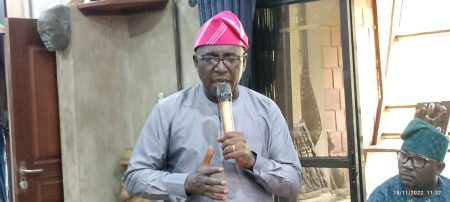The legal battle between former Kogi State Governor, Yahaya Bello, and the Economic and Financial Crimes Commission (EFCC) took a new turn in a Federal High Court in Abuja. Bello, facing charges of alleged N80.2 billion fraud, sought permission from the court to travel to the United Kingdom for medical treatment, a request that was ultimately denied by Justice Emeka Nwite. The crux of the denial revolved around the validity of the medical report submitted in support of Bello’s application. Justice Nwite deemed the report inadmissible as it lacked the signature of the issuing medical professional, a critical flaw that undermined its legal weight and probative value. This missing signature effectively nullified the report’s ability to substantiate the urgency or necessity of Bello’s medical trip abroad.
The court proceedings also addressed procedural arguments raised by the prosecution. The EFCC contended that Bello’s application constituted an abuse of court process and that his sureties should have been notified prior to filing the application. Justice Nwite dismissed both arguments. He clarified that the legal proceedings were solely between Bello and the Federal Republic of Nigeria, thus not requiring the involvement of sureties. Furthermore, the judge acknowledged that Bello’s application aligned with a previous directive from the FCT High Court, where he is also facing similar charges. This directive mandated that Bello seek permission from the court before traveling abroad, effectively negating the prosecution’s claim of abuse of process.
Bello’s legal team, led by Joseph Daudu (SAN), argued that the former governor had been battling hypertension for 15 years and required urgent medical attention abroad. They presented two documents as evidence of Bello’s health condition, with one being the unsigned medical report that ultimately proved insufficient to sway the court. While acknowledging the defendant’s right to seek medical care, the judge emphasized the need for supporting evidence that met legal standards. The absence of a signed medical report left the court with no justifiable basis for granting the travel request.
The court’s decision underscores the importance of procedural adherence and the weight given to legally admissible evidence in judicial proceedings. While Bello’s legal team asserted the urgency of his medical needs, their failure to provide a properly documented medical report undermined their argument. This case highlights the critical role of supporting evidence, particularly in cases involving individuals facing criminal charges. The requirement to provide valid and verifiable documentation ensures that the court can make informed decisions based on credible information, rather than unsubstantiated claims.
The denial of Bello’s request does not preclude future attempts to seek medical treatment abroad. However, any future applications must be supported by comprehensive and properly documented medical evidence. This incident serves as a reminder of the stringent requirements placed on legal documentation and the potential consequences of overlooking seemingly minor details. The absence of a simple signature in this case had a significant impact on the outcome, emphasizing the need for meticulous attention to detail in all legal matters.
With Bello’s request denied, the focus now shifts back to the ongoing money laundering charges against him. The trial is set to continue on October 7th and 10th, as well as November 10th and 11th, 2025. These scheduled dates will provide the platform for further legal arguments and the presentation of evidence related to the financial crimes allegations. The legal journey ahead for the former governor remains complex, and the outcome of these future proceedings will significantly impact his future. The case serves as a high-profile example of the complexities of navigating the legal system and the importance of adhering to its stringent rules and procedures.














